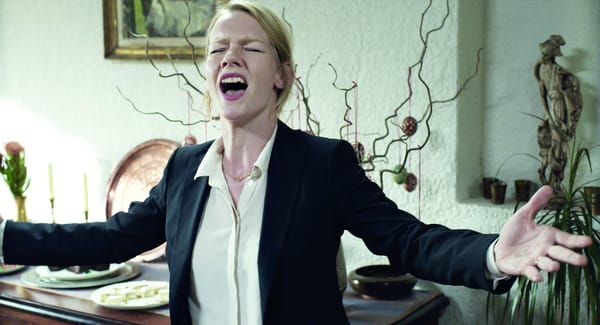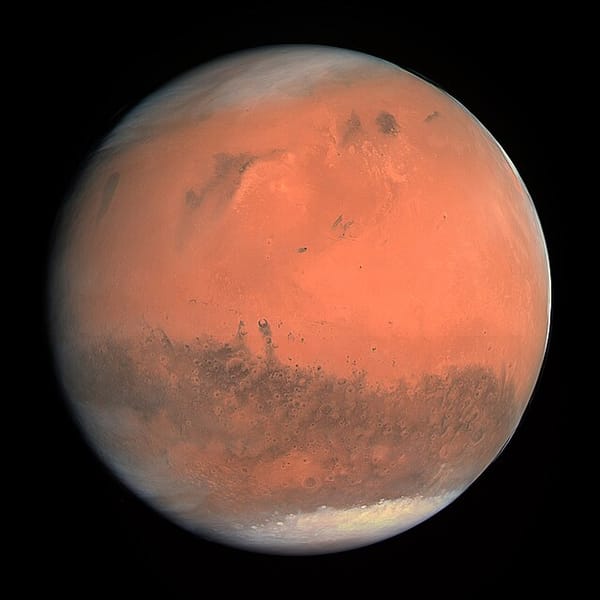And the Best Picture Award goes to...
A selection of our writers let us know which film they think should take home the top prize of Best Picture at this Sunday’s Academy Awards Ceremony
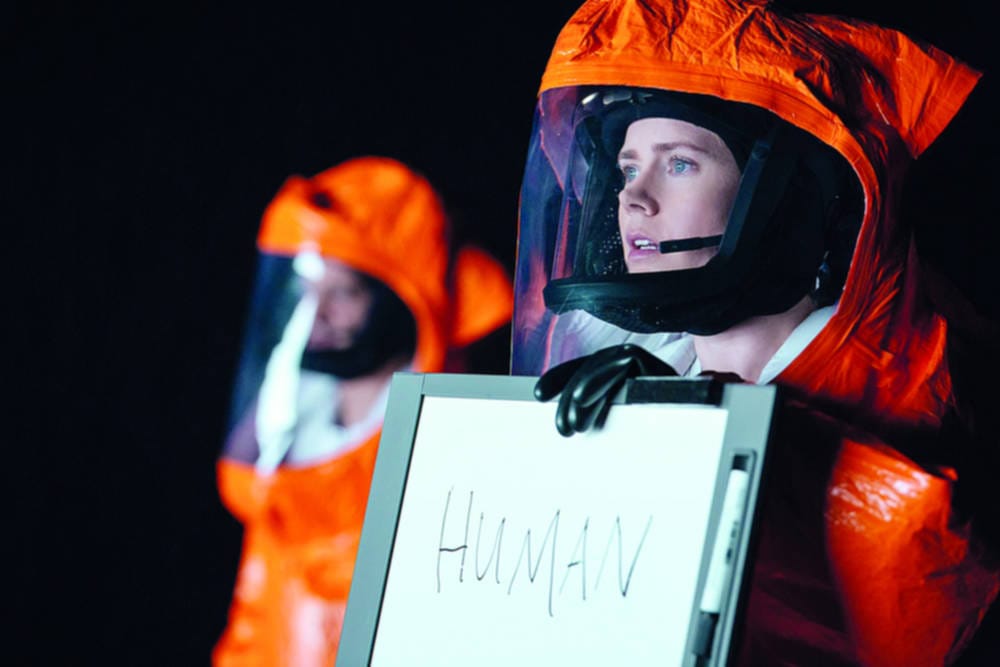
Arrival | Cale Tilford's pick
With Arrival, Denis Villeneuve has turned a tedious and uninteresting topic – the translation of an alien language – into science-fiction spectacle. From its meticulous sound design to its subdued lighting, the whole film looks and sounds otherworldly. Cinematographer Bradford Young showcases his talent, with sweeping shots of rolling clouds and the cavernous inside of an alien spaceship, while Jóhann Jóhannsson’s score is filled with strange and erratic noise, complementing the harsh clicking of the heptapods’ speech. Of this year’s Best Picture nominations it is easily the most technically impressive (despite picking up less nominations in technical categories than La La Land), and even with its interesting alien ‘antagonists’ it feels far more rooted in reality compared to most modern science-fiction.
Reflecting on how language shapes our world and interactions, the film’s protagonist Dr. Banks (Amy Adams) asserts that “language is the foundation of civilization. It is the glue that holds a people together. It is the first weapon drawn in a conflict.” The unfamiliar language of the heptapods replaces the wonder and excitement usually provided by explosive alien weapons; the creatures emit an ink-like substance which flows through the air ‘spelling’ out calligraphic-style messages which Dr. Banks and Ian Donnelly (Jeremy Renner) , a mathematician, must decipher. Amy Adams’ performance as Dr. Banks, the foremost expert in her field, is equally impressive: we see her struggle with her past as she tries to save the planet from destroying itself, and international rivalries escalate. Arrival’s promotion of communication over conflict, and cooperation over military intervention, is timely given the world in which we currently find ourselves.
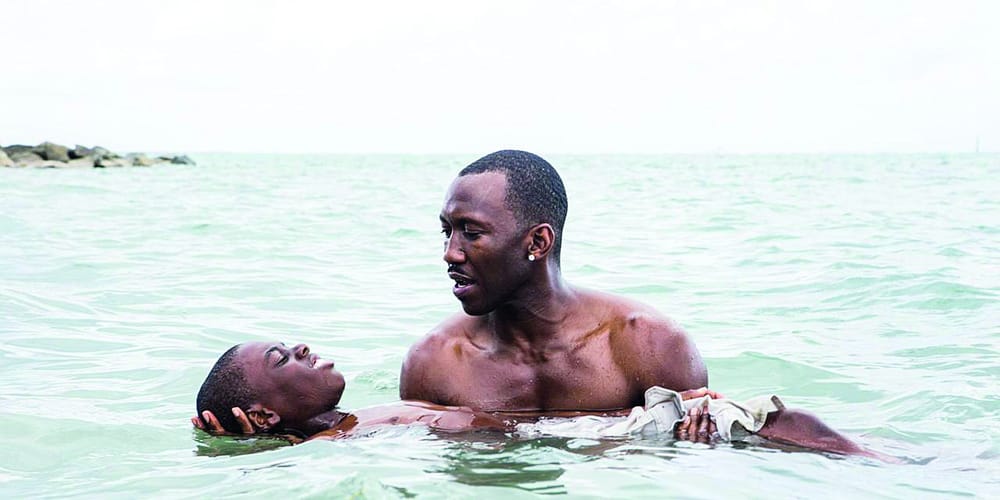
Moonlight | Hafiz Zainal's pick
Every so often a film comes along on the big screen and, for a brief moment, thaws out the iciness of our hearts, reminding us of what it means to be human – profoundly vulnerable and emotional – before we return to our seemingly robust and apathetic façade. Moonlight happens to be such a film. The centrepiece of this cinematic triptych is Chiron, a boy whom we all know from school – that boy who was called ‘faggot’ before he even understood what it meant. Some of us may have had to endure the unfortunate affair of being mercilessly bullied, taunted, and humiliated while growing up for being born a certain way, and the lucky ones are blessed with abundant care and love from people they can depend upon, enabling them to bounce back up relatively unscarred. But that isn’t the case for young Chiron, who lives in an impoverished neighbourhood and whose mother is a drug addict. Recovering from such a terrible ordeal is akin to finding the way out of a tunnel without a flashlight – it seems hopeless. But the ending of Moonlight suggests that he has found hope and has attained his yearning for love, with a concluding scene open to interpretation if one isn’t optimistic enough – and it’s hard to be optimistic in the current climate.
It is refreshing to watch a film portray a black man as a quiet, sensitive protagonist as opposed to the aggressive criminal stereotype all-too-often used in mainstream Hollywood films. Moonlight, in its entirety, is a film about love and its capacity to alleviate painful past experiences – and that is something we can all relate to, regardless of our differences.
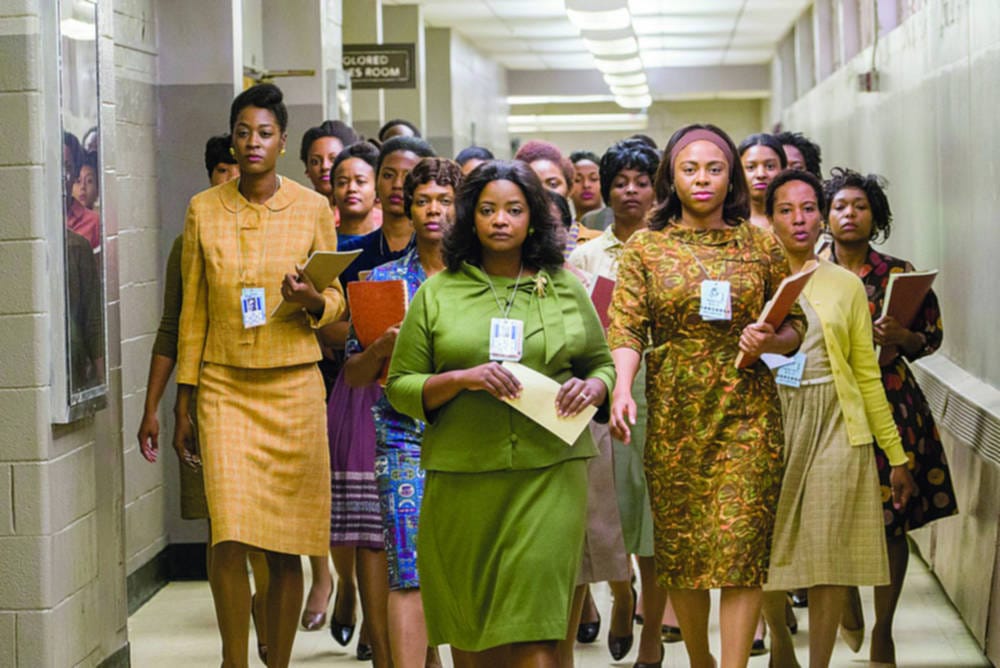
Hidden Figures | Indira Mallik's pick
Let’s face it: this has been a pretty shit year. From the rise of the far-right in Europe, to an American president trying to block Muslims from entering the country, it’s been a political atmosphere dominated by fear and hatred of others, and a centralisation of voices that would previously be marginalised. Into this environment therefore, the success of Hidden Figures is something to be celebrated. Based on the true-life stories of the African-American women who calculated the trajectories for NASA astronauts during the space race, Hidden Figures acts as a call for unity, reminding us that the ‘greatness’ that Trump supporters want to bring America back to wasn’t that great at all.
Taraji P. Henson, Octavia Spencer, and Janelle Monaé star in the film, which mainly centres around the ‘computers’ – groups of women who performed complex calculations at top speeds to help rockets get off the ground. The film highlights the vital importance these women played and the challenges they faced, in an era when high-tech computers were a distant vision. Henson plays Katherine Goble, whose skill with analytic geometry saw her calculating space flights, breaking down racial barriers placed in her way with a single-minded strength of will. Hidden Figures is celebratory and unashamedly so; it is ‘feel good’ viewing at its most pure and wonderful. It celebrates the legacy of these black women, which has been largely unnoticed by historians, but also asks us to remember that all individuals have worth; not just those who can help NASA. It’s a lesson many leaders could learn, and the Academy would be sending out a strong message to the world by selecting a film that is so inherently political as Best Picture.
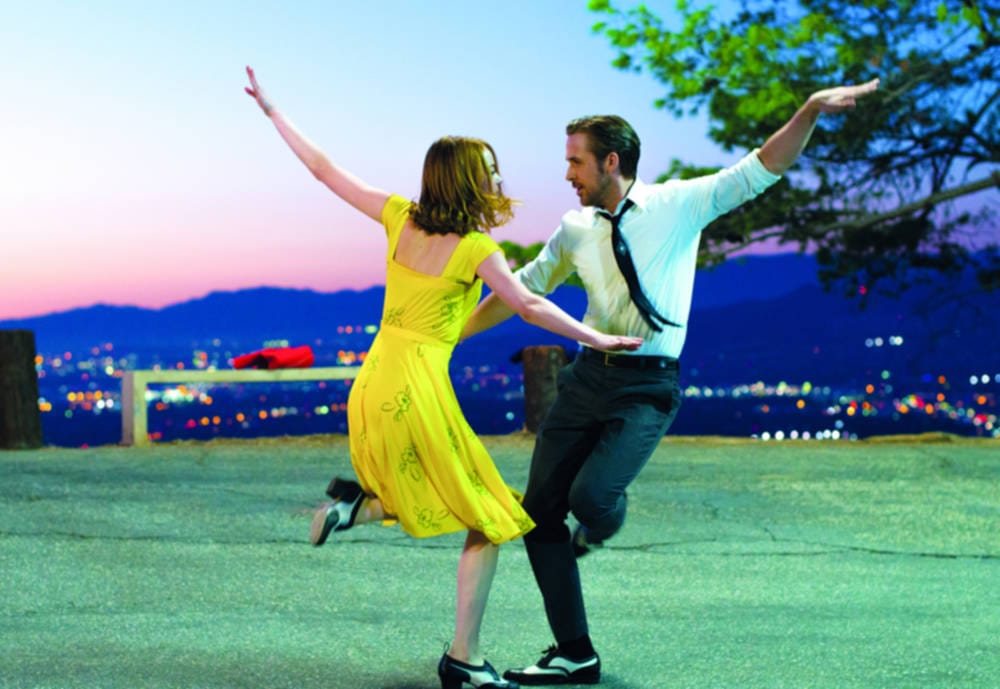
La La Land | Tom Stephens' pick
What a year it is for Best Picture nominees. There really is something for everyone on the list this time around: family drama in Manchester By The Sea, Fences and Lion; sci-fi in Arrival; war drama in Hacksaw Ridge; intelligent thriller Hell or High Water; and even a classic “based-on-a-true-story” unsung heroes (or in this case, heroines) tale in Hidden Figures. It’s one of the most all-round acclaimed collection of nominees in years – none of the films have an approval rating on Rotten Tomatoes lower than 85% – but despite this there have only been two films dubbed to win at any point in the process: Moonlight, which began picking up speed as a possible Oscar winner when it won the Golden Globe for best drama earlier this year, and La La Land.
I’ll confess now; I haven’t seen Moonlight, and I feel ashamed about it – not just because by all accounts it’s one of the most moving portrayals of a man coming of age that has been put to the screen this decade, but because I can’t make a fully informed judgement about which film truly deserves the golden statue this year.
But I will say this: La La Land, frontrunner for the award from the get-go and darling of critics and crowds alike, has received all that hype for a reason. The main reason, aside from its cinematic beauty, the perfection of its direction and writing, the power of its two central performances, and its utterly lush musical score: it is a film that dares to dream. In the era that we’re living in, where the entire world seems to have taken a turn towards the dark, it takes a hell of a lot of heart to make a film this powerfully uplifting, that reminds all who watch it of the power of self-belief without miring itself in cliché.

Manchester by the Sea | Fred Fyles' pick
Which of these films will matter a year from now? What about five years? What about a decade? Too often, the Academy has made the decision to give the Best Picture award to a film that, realistically, won’t stand the test of time. How many times have you watched Argo? What about The Artist? What about Crash?! It’s time that the Academy bucks the current trend, and goes for a winner that will really hold up down the line. That winner is Kenneth Lonergan’s Manchester by the Sea, a heart-breaking tale of loss and grief, which eschews happy endings in favour of real drama.
While the tale might seem simple on the surface – Casey Affleck plays Lee, a janitor who must return to his hometown after the death of his brother, to look after his teenage nephew – Lonergan’s script and the excellent acting from the cast help plumb hidden depths. As the film unfolds, we begin to realise what Lee has been running from all these years and old emotional scars are reopened in violently emotional scenes. While Affleck does well with his character – all downcast eyes and low voice – the real beating heart of the film can be found in Lucas Hedges’ performance as Lee’s nephew, whose adolescent angst plays off against Lee’s repressed calm. Michelle Williams, similarly, puts on a barnstormer of a performance as Lee’s estranged ex-wife. At its heart, Manchester by the Sea is an emotional drama, comparable to works by Ibsen or Chekhov in its nuance and power. A reasonably simple story, well-told, with direction that gets the very best out of the actors: Manchester by the Sea is a classic, and deserves to win the Best Picture award.





